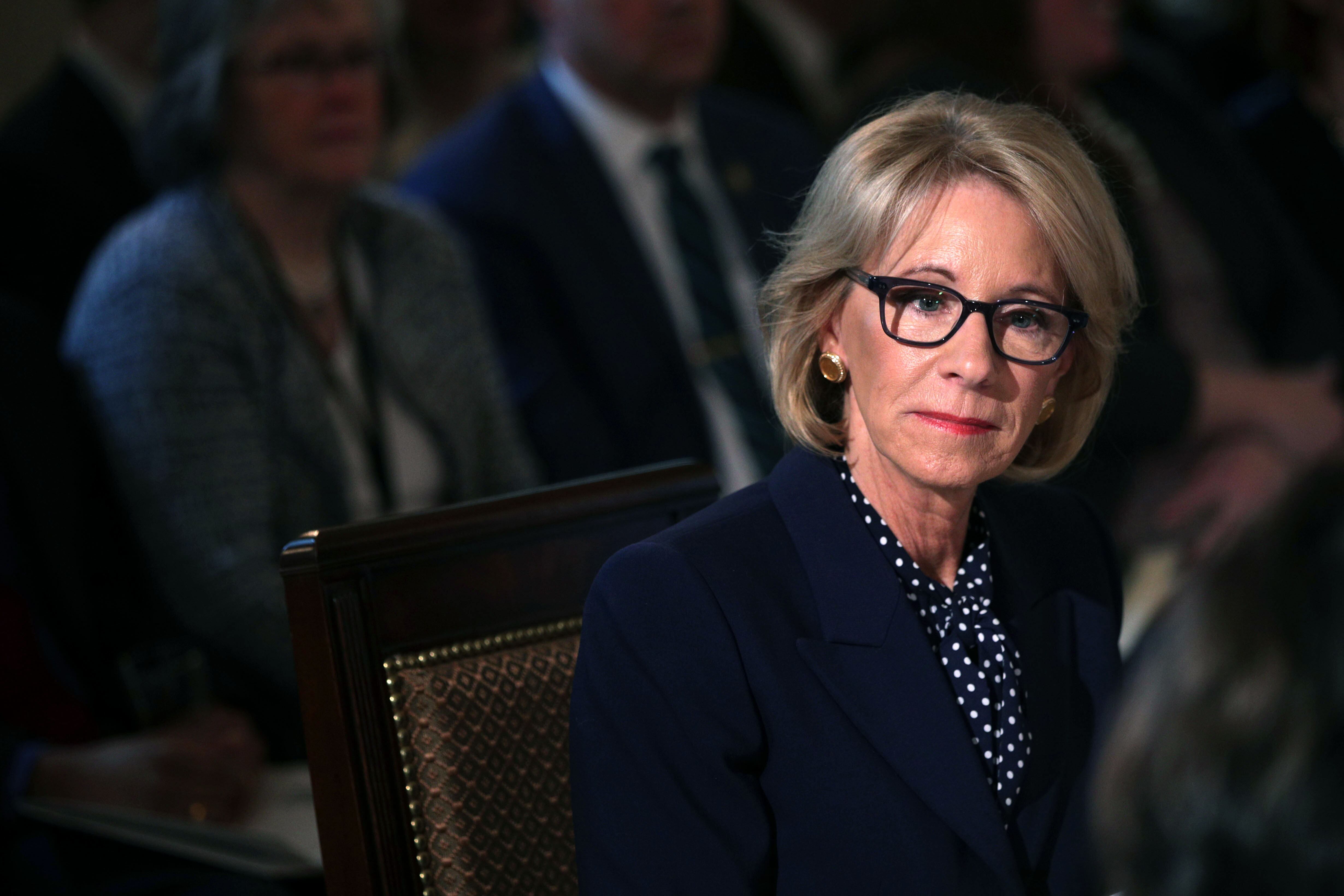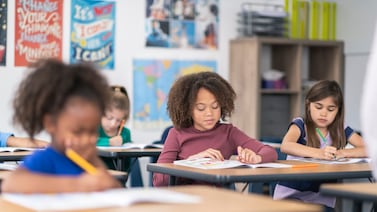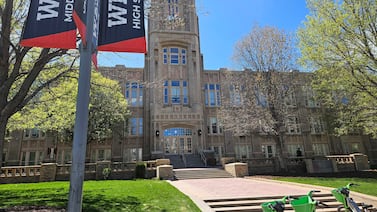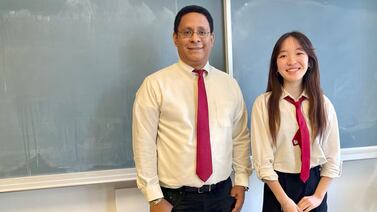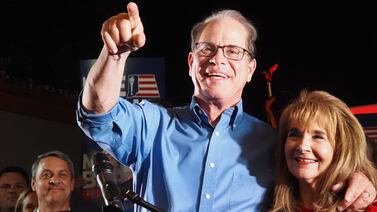Michigan’s top schools official is advising districts to hold off on guidance from U.S. Education Secretary Betsy DeVos that they should set aside extra money for private school students.
Districts are set to receive $350 million under the coronavirus relief law passed in March, which they will use to pay for pandemic-related supplies like hand sanitizer and thermometers, and to plug some budget holes caused by a massive anticipated shortfall in state revenue.
Part of that money was already going to be used to provide services such as music classes or physical therapy to private school students from low-income families. But DeVos’ interpretation of the formula would route five times more to private school students in Michigan alone, bringing the total to $25 million from $5 million.
Those additional funds can be set aside until it’s clear that DeVos’ actions are legal, State Superintendent Michael Rice said in a memo to Michigan superintendents on Thursday.
“There are too few resources for our young people as it is,” Rice said in an interview Friday. “We’re going to be watching this closely and we’re prepared to insert ourselves as need be.”
DeVos argues that all students are affected by the pandemic, and that all should benefit from COVID-19 relief funds. She wants states to provide services to all private school students, not just those from low-income families.
Michigan public schools enroll roughly 1.5 million children. Private schools in the state enroll about 105,000, roughly 2% of whom come from low-income families.
Public school advocates nationwide have objected to that interpretation of the coronavirus aid package, saying it would effectively shift federal funds from low-income students to students whose families can afford private school tuition. While some states — Tennessee, for example — have said they will follow DeVos’ guidance, others have pushed back. In Indiana, the top education official, a Republican, instructed school districts to ignore DeVos’ guidance, saying it was at odds with the law.
The Michigan Department of Education plans to appeal to federal education officials and to Congress to stop DeVos’ rule, and would consider a lawsuit if those appeals are unsuccessful, Rice said.
DeVos, who has pushed a range of policy initiatives that would send federal dollars to private schools, doubled down this week, saying she would seek to give her plan the force of law by making it an official rule. That can take weeks, although the department is seeking to expedite the process.
If DeVos gets her way, Grand Rapids Public Schools, one of Michigan’s largest districts, would use about $2 million of its $8 million grant for private school students.
Grand Rapids officials didn’t immediately say how much more they’d be spending on private school students if DeVos gets her way.
Rice says he expressed his concerns directly to DeVos in a phone call earlier this month. A national association of state superintendents, of which he is a member, also wrote her a letter arguing that sending more money to private school students would deprive students from low-income families of federal support.
In the meantime, Rice said, Michigan will consult with its lawyers and education groups across the country about whether DeVos has the right to make the change. It remains to be seen whether it would stand up to a legal challenge.
Lamar Alexander, a top Senate Republican, has said that her approach is different than what congressional leaders expected, though he added that she “may have the authority” to continue with her plan.
The extra money for private schools would be used for hand sanitizer and technology to help students learn from home, said Brian Broderick, executive director of the Michigan Association of Non-public Schools, which represents parochial schools that enroll about 80,000 private school students. He said districts will hurt those students if they put a hold on coronavirus funds while the dispute over DeVos’ rule plays out.
“All children have been impacted by the pandemic and the issues surrounding the pandemic, and all children should be able to get the same percentage of relief,” he said.


